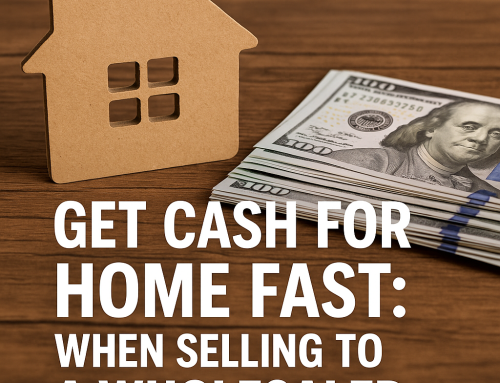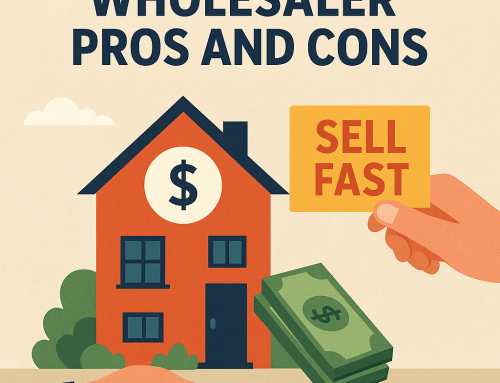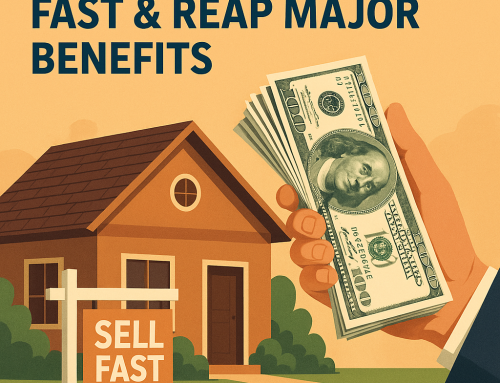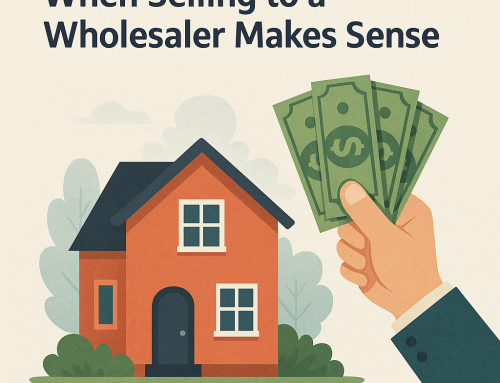- The Real Cost of Selling
- 1. Closing Costs
- 2. Repair Costs
- 3. Real Estate Agent Fees
- Staging and Marketing Costs
- Taxes and Financial Considerations
- Moving Expenses
- Time vs. Money: The Balancing Act
- Conclusion
Selling a home can be an exciting yet daunting venture, especially when the goal is to sell it fast. Many homeowners rush into the process, eager to close the deal quickly. However, this haste can often obscure the hidden expenses that might come into play. Understanding these costs is crucial in ensuring a smoother selling experience and avoiding unexpected financial burdens.
The Real Cost of Selling
When assessing the financial implications of selling a home, it’s important to recognize that the listing price isn’t the only figure to consider. Hidden expenses often lurk beneath the surface and can significantly impact your final profit. Here are some of the most common hidden costs:
1. Closing Costs
Closing costs can range from 2% to 5% of the sale price and can include various fees such as title insurance, attorney fees, and transfer taxes. Home sellers often underestimate how much these costs will eat into their profits. It’s advisable to calculate these expenses beforehand to get a clearer picture of your net earnings when you sell home fast.
2. Repair Costs
Most buyers expect homes to be in good condition. Even if you think your house is well-maintained, a potential buyer may request repairs during the inspection phase. Common repairs can include fixing leaks, replacing broken tiles, or addressing any safety concerns. Setting aside a budget for these repairs can help you avoid any rushed fixes that could cost you more in the long run.
3. Real Estate Agent Fees
While working with a real estate agent can facilitate a quick sale, their commission is typically between 5% to 6% of the sale price. This expense, while necessary for many sellers, is a significant cost that affects your bottom line. If your priority is to sell your home fast, consider if you are willing to handle the selling process yourself to save on these fees. Alternatively, some agencies specialize in offering cash for homes, which might provide a faster and simpler selling pathway.
Staging and Marketing Costs
To attract potential buyers quickly, many sellers invest in staging their homes. This can involve renting furniture, hiring a staging consultant, or investing in professional photography. While these costs can enhance the appeal of your home and help you sell home fast, they need to be weighed against your overall budget. Moreover, since the market can vary, it may be wise to research whether these investments currently yield a good return in your area.
Taxes and Financial Considerations
When selling your home, you might anticipate capital gains taxes, especially if your home has significantly increased in value since you purchased it. Understanding your tax situation can prevent unexpected deductions from your selling price. Additionally, if you have an outstanding mortgage, early repayment fees might apply.
Moving Expenses
Don’t forget to account for the costs associated with moving. Whether you’re calling in professional movers or renting a truck, these costs can add up quickly. If you’re trying to sell your home fast, you may also need to cover short-term storage for your belongings if the closing date does not align with your move-out timeline.
Time vs. Money: The Balancing Act
Ultimately, speeding through the home-selling process can lead to overlooking crucial details that may end up costing you. Balancing speed with meticulous planning can make the difference between a successful, lucrative sale and a regretful one. Consider listing your home on platforms specializing in cash for home sales or exploring companies that may offer expedited buying processes.
Conclusion
Selling your home fast requires more than just a “For Sale” sign in your front yard. By uncovering and preparing for the hidden expenses associated with the sale, you can set realistic expectations and enhance your selling experience. Awareness and preparation can help smooth out the process, leading to a swift and profitable transaction that meets your needs. As you prepare, take the time to account for these factors – your future self will thank you.




